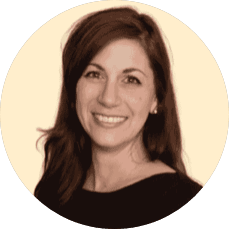
Making Chemistry Click: Dr. Karl Bailey Brings Science to Life at Clark College
Clark College, located in Vancouver Washington, is known for its commitment to student-centered learning and accessible education in the Pacific Northwest. With strong roots in community and academic excellence, the college continues to innovate through faculty like Dr. Karl Bailey, who’s redefining how chemistry is taught, one experiment at a time.
“I don’t just want students to memorize chemistry. I want them to feel it, see it, and understand how it matters in their lives.”
Dr. Bailey didn’t set out to become an online chemistry trailblazer. But when the need arose to take General, Organic, and Biochemistry (GOB) I and II labs online, he reimagined what remote lab learning could be for nonmajors, nursing students, and health professionals at Clark College.
With over a decade of online teaching experience, Dr. Bailey knew that simply translating in-person labs to a digital environment wouldn’t cut it. “The curriculum had to match what we were doing on campus,” he emphasized. Quality, accessibility, and alignment with Quality Matters (QM) certification were non-negotiable. So was equity. His students, often juggling work, families, and financial pressures, needed a lab experience that met them where they were.
His efforts have earned him the 2025 Golden Goggles Award for Pedagogy Pioneer of the Year, recognizing not just his expertise in the subject, but his craft in teaching it.
Chemistry + Creativity + Community = Student Success
So he got to work, choosing hands-on lab kits that mirrored the rigor of campus experiences, building seamless integrations with the LMS, and creating a warm, supportive virtual classroom that never felt like learning in isolation.
“Be a warm demander,” Dr. Bailey tells fellow instructors. It’s a philosophy that shows up in everything he does. From hosting weekly lab-only office hours to creating pre-lab lectures and fostering lab-specific discussion boards, he makes space for community and learning without pressure or pretense.
The results? Students thrived.
“I was really pleasantly surprised with how user-friendly the labs were and how much I learned from them. I felt very empowered in my own learning.”
Dr. Bailey’s students have consistently praised the hands-on labs quality, the ability to learn at their own pace, and the flexibility to do real science on their own terms. Many shared that this was their first time doing chemistry at home and that it was both eye-opening and confidence-building.
“With an actual interactive lab, I was making real-time observations, realizations, and, of course, mistakes, which really allowed me to test my understanding.”
But it wasn’t just about convenience. It was about access. Dr. Bailey’s approach acknowledged the lived reality of his students: 81% of part-time community college students work while enrolled, and nearly half are 24 or older, often with dependents. Cost, childcare, gas money…these aren’t abstract concerns; they’re deal-breakers.
“Paying this price helps in the cost of not having to get a babysitter or spend extra gas money and time driving all the way to the campus, so it evens out for me!”
Dr. Bailey’s thoughtful approach makes him not just a science educator, but a learning designer.
- He replaced some traditional assessments with assignments where students analyze and critique scientific studies in the news, bridging lab science with everyday decision-making.
- He uses a self-reflection model in student journals, prompting them to explore how chemistry intersects with personal beliefs, values, or even career goals.
- He’s constantly tinkering with instructional methods to better support different learning styles because he knows one size never fits all.
“Online learning spaces can be vibrant, equitable and accessible places where our students can collaborate, research, communicate and explore at a flexible pace. One of my favorite parts of online learning spaces is to provide access and opportunity directly to our students, but also to others in their lives. Consider just access to basic scientific equipment in a home with a parent balancing family, work, and going to school. When a family member does a lab on the kitchen counter or explains a concept from class at the dinner table, family and friends participate in that experience.” -Dr. Karl Bailey
Top Tips from Dr. Bailey
To make sure nothing fell through the cracks, Dr. Bailey regularly sought feedback and encouraged students to speak up about what could be better. More videos. Recap materials. Peer collaboration. And he listened.
“The struggle is part of learning,” he says, and it’s clear he treats each student setback as an opportunity to deepen learning, not penalize it.
That mindset extends to his own professional growth. From working with instructional designers to earning QM certification and engaging in cross-campus collaboration, Dr. Bailey models exactly what he teaches: growth takes work, and great science doesn’t happen in a vacuum.
The Golden Goggles Pedagogy Pioneer award celebrates exactly this: educators who bring clarity, passion, and originality to how science is taught. Dr. Bailey’s work doesn’t just help students pass chemistry; it helps them understand why it matters. These are his key takeaways:
- Equity by design: Prioritized accessibility, cost-effectiveness, and flexibility to support working adult learners and parents.
- Real science at home: Students reported feeling empowered by hands-on kits that let them make discoveries and mistakes, just like in a real lab.
- Human connection still matters: Weekly office hours, lab discussion boards, and personalized feedback created a true sense of community.
- Student feedback matters: 79% of students said they had everything they needed to do a real lab online, and many found it more effective than in-person labs.
Dr. Bailey’s work is a reminder that meaningful learning experiences should be as rigorous as they are humane, and about making sure students, especially those who’ve been historically underserved, don’t just get by in STEM, but actually belong.
For more tips and best practices on supporting student success, check out our Peer Learning webinar on demand.

